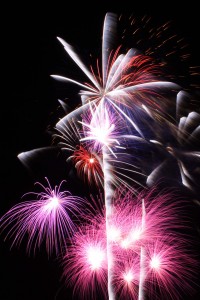What’s your greatest FEAR?
What’s your greatest F. E. A. R.? (F alse E xperiences A ppearing R eal)
Is it the same Question?
Is it the same Answer?
There comes a day when you realize that the fear never really goes away,
that if you really want something,
you have to be willing to do it afraid.
And maybe this is the only way you ever get to discover your fullest potential.
Maybe you just have to dive right in and face the thing that scares you the most.
Because in the end,
it’s not the rejections and so-called failures that will haunt you.
It will be your own potential left unexplored.
So maybe you don’t need to wait until you overcome your fears to take the first step forward.
Maybe you just need to know there’s something more important than fear. Something greater.
Something worth fighting for.
And maybe overcoming your fears is the least important part of your story anyway.
Maybe what matters is that you’re scared but still determined.
Shaky but still standing.
Afraid but still willing to try.
– Zanna Keithley
 Artist: Skategirl
Artist: Skategirl
What’s your greatest FEAR?
What’s your greatest F. E. A. R.? (F alse E xperiences A ppearing R eal)
False experiences appearing real or is it Forget everything and run or is it Face everything and rise?
WHAT SAY YOU…or are you to afraid to say?
Hmmmmmmmmmm. . .
Is it the same Question?
Is it the same Answer?
Your answer is what you SHOW
not what you SAY!
Psssssssssssssssssssssssssssssssssssssssssssssst:
When it comes to
FIGHT OR FLIGHT
no special shoes are needed. . .
JUST WALK
(it’ll eliminate being paralyzed or worse: DOING NOTHING)














 “The beginning and the end reach out their hands to each other.” —Chinese proverb
“The beginning and the end reach out their hands to each other.” —Chinese proverb







